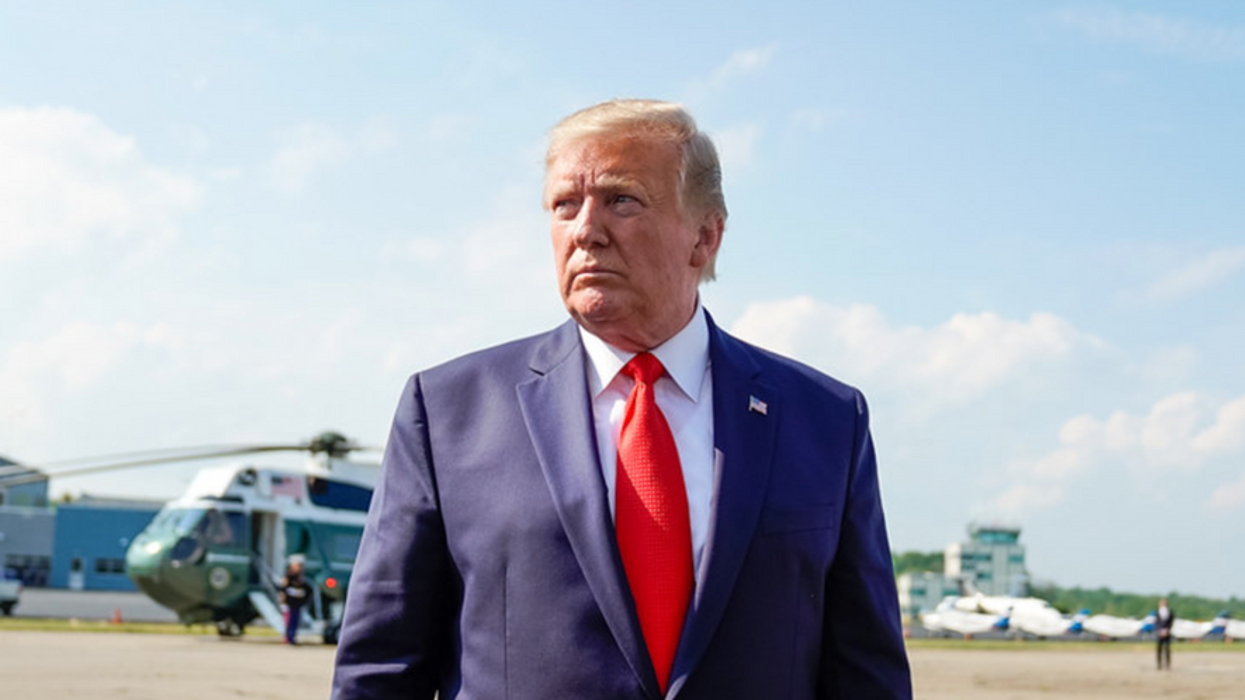Ex-federal prosecutor blasts Trump lawyers’ 'willingness to turn a blind eye to their ethical obligation'


Former assistant U.S. attorney Kim Wehle on Thursday slammed lawyers for President Donald Trump over an upcoming “hearing on Special Counsel Jack Smith’s motion for a protective order in the January 6th-related criminal case pending against Donald Trump.”
Writing for The Bulwark, Wehle notes that U.S. District Judge Tanya Chutkan on Friday will hold a hearing on Trump team’s claim that Smith’s motion is an “attack on … members of the press.”
The Hill reports:
Special counsel Jack Smith requested a protective order for evidence Friday evening, asking for Trump to be prohibited from sharing evidence in the case during the discovery process, citing things like grand jury materials and sealed search warrant affidavits. Prosecutors argued a protective order is needed due to Trump’s past of publicly discussing cases and targeting attorneys and judges in other cases against him.
According to Wehle, “by forcing the press to engage in this senseless debate, Trump has again stoked doubt about the foundations of our legal system.”
Nothing “Rule 12 of the Federal Rules of Criminal Procedure,” Wehle lays out the discovery process that applies “in every criminal case in every federal court in the country.”
“Part (d) of that rule expressly states that ‘at any time the court may, for good cause, deny, restrict, or defer discovery or inspection, or grant other appropriate relief,’” Wehle writes.
“The suggestion by Trump’s counsel that Smith’s request violates the First Amendment ignores the plain text of Rule 16 which, by the way, was promulgated by the United States Supreme Court and made into binding law by the U.S. Congress,” the legal analyst adds.
Given that Trump “has previously issued public statements on social media regarding witnesses, judges, attorneys, and others associated with legal matters pending against him,” Wehle claims Smith’s protective order “would draw the line is at allowing Trump to disseminate discovery materials to the public.”
In Trump’s written response, his lawyers acknowledge that Rule 16(d) authorizes protective orders, but claim (wrongly) that the rule limits them to cases involving “particularized safety or security concerns.”
Smith’s team earlier this week filed a swift motion in support of the protective order, insisting “there is no right to publicly release discovery material, because the discovery process is designed to ensure a fair process before the Court, not to provide the defendant an opportunity to improperly press his case in the court of public opinion.”
For Wehle, Trump’s lawyers “are making the judge make a ruling on the obviousness of the obvious.”
"The fact that this is all established law would in most cases have prompted the parties to work something out behind the scenes, without any need to involve the court,” Wehle writes, heralding Smith’s team for “refusing even to legitimize” Trump’s First Amendment argument.
But, Wehle claims, Trump’s lawyers are the ones doing the most damage.
“Their willingness to turn a blind eye to their ethical obligations on this front might wind up to be their client’s best defense,” Welhle says.